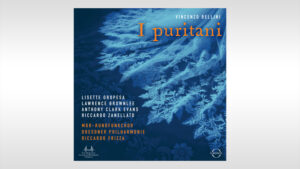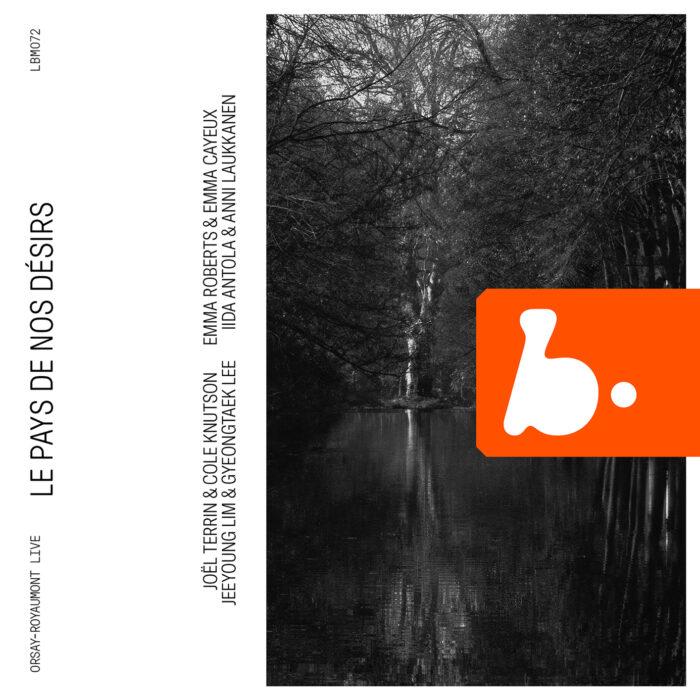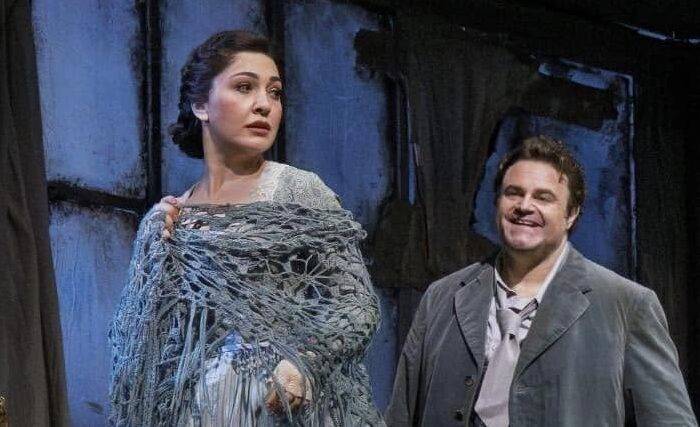
CD Review: EuroArts’s ‘I Puritani’
By Bob DieschburgWith Bellini’s “I Puritani” one steps into the heartland of Italian bel canto: The ensembles are mesmerizingly beautiful, the vocal lines infinitely refined, and the orchestration – with its mood painting role – proves a proto-dramatic foundation to the unfolding of the Romantic intrigue, prone to inspiring the operatic vocabulary of subsequent generations, and of Verdi in particular.
Needless to say, Bellini’s famously endless melody was embraced by conductors of every stripe. Bonynge may have laid claim to the repertory most lastingly; but its latest take, under bel canto specialist Riccardo Frizza, should not be dismissed lightly. Releasing on EuroArts, it proposes a novel, highly dramatized vision of the Bellinian swan song – supported, to its merit, by an astoundingly capable cast of predominantly American soloists.
Flowing Narrative
Frizza is on the fast side of recorded “Puritans.” It noticeably shows in the crispness of “A te, o cara’s” five minutes and 35 seconds; whereas most competitors clock in at well above six minutes, setting the tone for the aria’s dreaminess from the very first bars. Frizza may be accused of foregoing precious moments of music-turned-poetry. Yet within his overall conception of maintaining a maximum of inter-scenic continuity the toned down levels of leitmotivic sweetness seem rather justifiable.
The opera’s drama is also emphasized by the timbral homogeneity of, especially, Lisette Oropesa and Lawrence Brownlee. There is a peerless steeliness to Oropesa’s very corporeal portrayal of Elvira. Her coloraturas in “son vergin vezzosa” are spectacularly executed, though the overall feel of her interpretation appears to foreshadow the vocal aesthetics of Gilda and Violetta more than to hark back to the hardcore lyricism of Riccardo Muti’s Montserrat Caballé (in 1979; for EMI). Her top notes are rock solid, and dazzlingly incisive, allowing the soprano’s silvery timbre to penetrate even the deepest layers of human psychology. Elvira’s mad scene, for instance, strikes a perpetually sizzling balance between emotional frailty and dramatic introspection; each of her flourishes carries some nuance of expressivity.
A High Calibre Cast
In Lawrence Brownlee she finds a congenial partner, with a similarly metallic ring, and a propensity to stress the heroic impetuousness of the Royalist cavalier, Arturo Talbo. After all, his actions are the driving force behind the unfolding narration. Brownlee’s tone soars imperiously, and his “credeasi, misera” dauntingly boasts an air of nonchalance about the tessitura, and specifically about the aria’s notorious High F. Also, his voice effortlessly melds with the remaining singers among whom Anthony Clark Evans stands out for his glorious phrasing, and imposing gravity. His Riccardo aligns with the Golden Age tradition of Cappuccilli and Matteo Manuguerra. He spans indomitably sustained arks, though the flourishes arguably lack the contour of his great predecessors.
In the ever so popular “Suoni la tromba” Evans triumphantly finishes on the optional High G. His hefty sound is complemented by the velvety depths of the Italian bass Riccardo Zanellato, a most sympathetic incarnation of the benevolent Sir Giorgio Valton. His quasi-paternal instinct effectively transpires in the touching lines of “Cinta di fiori,” highlighted by Zanellato’s ability to vary dynamics and even descend into an unmediated parlato of sorts.
Naturally, the opera’s success rests on the choir’s capacity to be an integral part of the action. The MDR-Rundfunkchor, far from being static, becomes a dramatic persona of its own: Led by Frizza’s uncompromising thrust forward, it picks up every shade of expression, from grieving to the celebratory, and even the militant. Combined with its other assets, it makes Riccardo Frizza’s “Puritani” an excitingly competitive addition to a tearfully neglected segment of discographic history. It is doubtlessly one of the best operatic releases in all of 2024.


